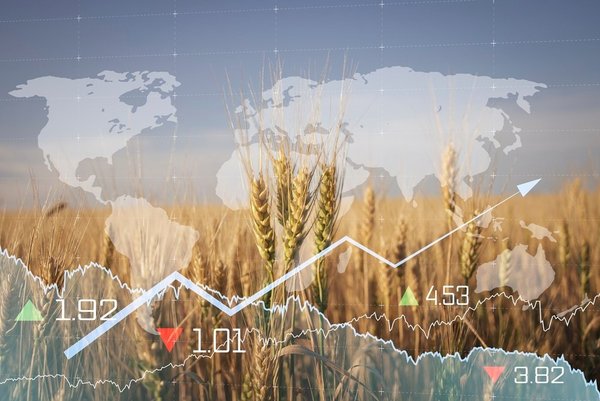 Read this article in French
Read this article in French- Share this article
- Subscribe to our newsletter
Tackling growing hunger
The war against Ukraine has turned a global food situation which already worsened significantly with the COVID-19 pandemic into a disaster. Since March, there have been hardly any exports of wheat and sunflower oil from Ukraine, and grain and oilseed prices have doubled. This is hitting poor people as well as those being provided with food aid in crisis areas or suffering from lasting drought particularly hard. At the same time, crops and yields in the next season are in jeopardy, for fertiliser prices have risen threefold world-wide, and global delivery logistics are disturbed. There is a threat of longer world-wide food scarcity.
In the five worst-hit countries of Ethiopia, Afghanistan, Yemen, South Sudan and Somalia, an estimated 750,000 people are already facing an acute hunger threat; globally, in 2022, approximately 50 million more people will be undernourished than in the previous year. In addition to a swift restocking of emergency and transitional aid, this calls for increased investment in the crisis resilience of food security and agricultural systems.
Over the last few months, there have been a number of reactions to the crisis, including the setting up of a Global Crisis Response Group headed by the UN Secretary General. In addition, Germany has taken advantage of its G7 presidency this year to ensure that the global food crisis tops the agenda – not only for the G7 development ministers, but also for the ministers of agriculture and foreign affairs as well as for the meeting of heads of state and government at Schloss Elmau.
Already in April, Development Minister Svenja Schulze had launched the Alliance for Global Food Security together with World Bank President David Malpass in order to ensure that the major G7 donor countries could take swift, coordinated action together with the relevant UN organisations under the umbrella of the UN Global Crisis Response Group.
In order to consolidate the Alliance, Germany’s Foreign Secretary Annalena Baerbock, Minister of Agriculture Cem Özdemir and Development Minister Svenja Schulze jointly organised the conference “Uniting for Global Food Security” in Berlin, on the 24th June – with overwhelming success. More than 50 international delegations participated and impressively demonstrated the international community’s willingness to respond to the German and Alliance call.
At the subsequent G7 Summit, the heads of state and government then came up with an additional 4.5 billion US dollars for food security for this year, which they emphasised in a special statement on the global food crisis. Here, it was also stressed that the current acute crisis offered an opportunity to develop a transformation to sustainable agricultural and food systems right now.
There is far-reaching international agreement to swiftly assist the countries most affected while simultaneously investing in the medium- and long-term sustainability of agricultural production and in healthy food for all. Here, the Global Alliance is in line with the topics and measures addressed in 2021 with the UN Food Systems Summit. Furthermore, the Alliance seeks to see to it that international aid arrives locally in a more coordinated manner.
GIZ’s engagement in achieving sustainable agriculture adapted to climate change
For years, German development cooperation has been supporting people in developing countries in making better preparations to cope with climate change. Commissioned by the German Federal Government, Deutsche Gesellschaft für Internationale Zusammenarbeit (GIZ) supports sustainable agriculture adapted to climate change and campaigns for better food. For example, in several projects, GIZ is involved in seeing to it that people can provide themselves better with food and become less dependent on imports. Already in the course of the corona pandemic and the price hikes over the last few years, substituting imported products such as wheat flour with locally available products became increasingly important, and now too, this is helpful in making up for higher costs and scarce amounts available.
Thus GIZ recommends growing locally adapted crops such as millet, manioc, sweet potatoes and beans, which saves water and puts less pressure on the soil, as well as increasing yields and improving warehousing and processing. In Côte d’Ivoire, for example, a 20 per cent share of manioc flour is added to wheat flour – the good baking qualities of wheat are maintained even though a fifth of it is replaced locally.
Already since 2017, agricultural cooperatives in West Kenya have been processing dried sweet potatoes into flour and pastry and are using this to bake cakes, tarts and bread – all of which then contains more vitamins and carotenes, and is more nutritious.
Thus German development cooperation is contributing to achieving Sustainable Development Goal 2, “No Hunger”, by 2030 – despite the multitude of crises occurring ever more frequently one after the other and the conditions to achieve this goal getting more and more difficult.
Author: Dr Heike Höffler, Deutsche Gesellschaft für Internationale Zusammenarbeit (GIZ) GmbH, Head, Agriculture Sector Project, Bonn/Eschborn, Germany





Add a comment
Be the First to Comment